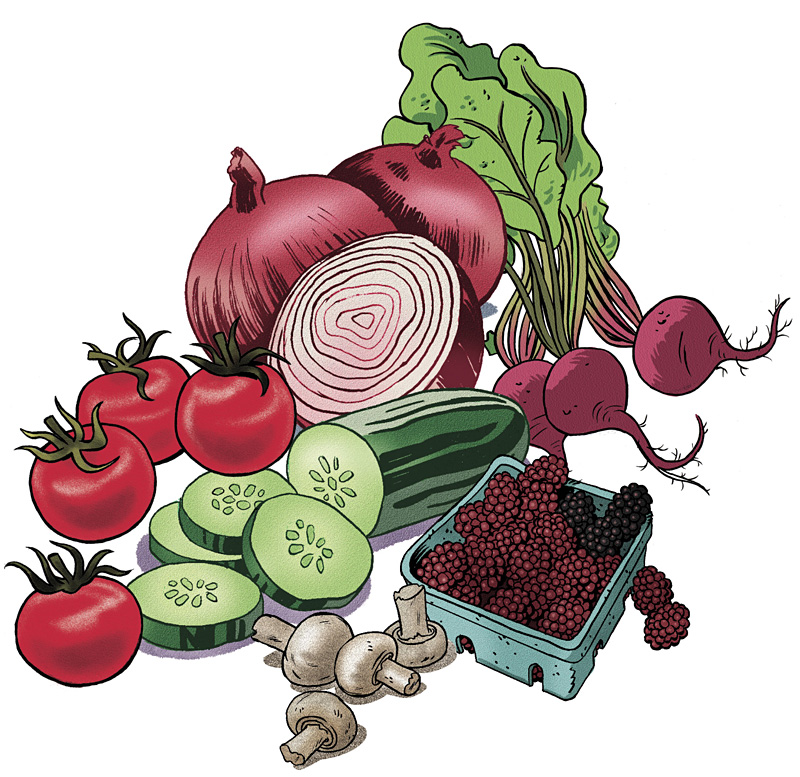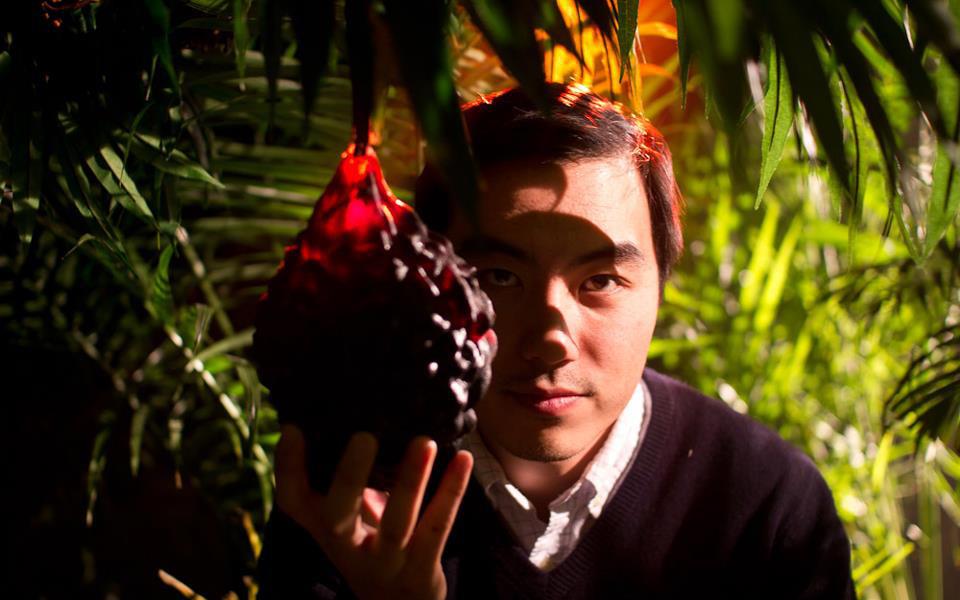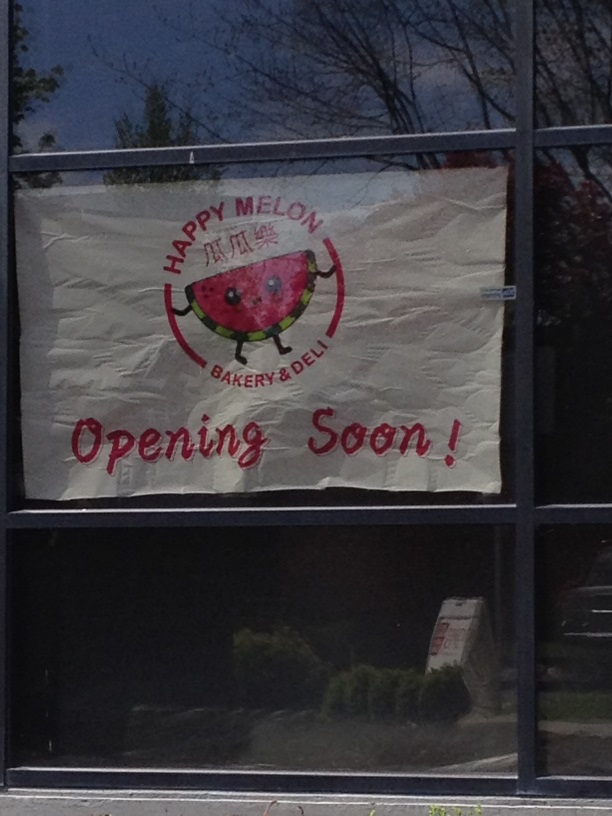Farming is tough. To raise the potatoes we mash for dinner and the tomatoes which fill our summer sandwiches, growers are forced to battle banks, fight off pesky herds of deer, and figure out what to do when it doesn’t rain for five weeks straight.
Wanting to honor our local farmers’ Herculean efforts, we turned to folks who’ve taken on a similarly daunting task. Local poets who bravely wrestle with metaphors, meter, and sometimes rhyme generously responded to our call for poems about Pacific Northwest produce. All summer long, Seattle Weekly‘s food blog, Voracious (seattleweekly.com/voracious), has run poems celebrating what’s newly ripe at area farmers markets. (The Neighborhood Farmers Market Alliance chipped in recipes, which you’ll find online.)
On Wednesday, August 29, we’ll celebrate our “Producing Poetry” series with a reading at the Columbia City Farmers Market, 3698 S. Edmunds St., featuring seven contributors. The event runs from 5:30–6:30 p.m., and is open to the public. Here’s a taste of what you’ll hear, along with each poem’s corresponding fruit or veggie:
GREENS
Field Greens by Ann SpiersThe field greens,encased in plastic, vacuum packed,each leaf pre-washed, debugged,cost me six dollars,price of two lattes, skinny, extra hot.
Why am I buying this?
I own an acre, and rain falls on me too.My push mower cuts throughsun-dappled green, its dandelions,free salad, each leaf worth ten cents.My ditch is full of water,still running with winter flow.Tat soi and watercressemerge like a thousand bitter angels.From the wood’s confused edge:sorrel, miners’ lettuce, lambs quarters.Everywhere, mint bullies wild mustard;oregano self seeds among mystery grass.
But here at the farmer’s stallmy hunger is sharp,the greens so preparedto be slicked with oil and vinegar.The work is done;I hand her my money, crisp from the ATM.She gives me back four dollars,wet, handled, also green.
Spiers is Vashon Island’s poet laureate. Her son, Wiley Frank, runs Little Uncle with his wife, PK.
ONIONS
Peel by Georgia JohnsonShe’s all . . .shoulders.Soft, almostgenteel in her paper-thin chemise.
With her, ripe is defined by heat,by heft in the hand,not so much perfume orthe give of flesh.
But oh, her scentonce the chemise is strippedonce those straps have fallenit’s no secret she can make a grown man cry.
Once bitten there’s no stopping her,you’ve got to go all the way with her,as layer by layer drops away you find it’s allin the curve and swell of her tight wound heart.The bitter then sweet of her sizzlegives tongue full range of pleasure.
Cousins on all continents,these broads command respect fromMorocco to Myanmar, from Paris to São Paulo,stars in their own right like the greatWalla Walla,sweet Southern Vidalia,the Oignon doux des Cévennes,that red-headed hot Bermuda,the child-like Cipolla Rossa di Tropea.
Johnson is a culinary-arts teacher and Food Services Manager for the La Conner School District.
TOMATOESby Michael Dylan Welch
a broken bamboo cane—ripe tomatoesgrow along the ground
Welch is vice president of the Haiku Society of America.
CUCUMBERS
What Bitterness? by Molly TenenbaumNever made sense what they said—to cut off one end and rub itwith salt on the rest
or to salt and let standrinse and dry
when before any method or recipemy mother sliced them in saladand we all lingeredin the litter of dinnerfingers allowedto slide the remainingvinegar salt pepper circles from the bowldropping them slippery tart to our mouthsalthough I will add
they’ve been used in art for exampleat the museum caférefreshing the watervisually at first in the dispenserwith floating translucent circlesthe greens in concentric colors more luminousthe more toward the seeds in the center
and then as fragrance in the glass invisibly
and as one more example my friendswhose two doors take two keyscode themdark green for the outerpale green for the inner”like a cucumber” they remind medropping a set in my hands and telling meto make myself at home
In addition to authoring three books of poetry, Tenenbaum plays Appalachian fiddle and banjo.
MARIONBERRIES
For her produce poems, Kate Lebo erased selected words from the featured fruits and vegetables’ Wikipedia entries. The original erasures are posted at seattleweekly.com.
MarionberryFor the former mayor, breeding is a cross between a large spine and a deep thaw.The more powerful ice over the mar. Berrywas released under the name Marion after the county adapted to the hurt.Most legislators have agreed not to press the issue.
Lebo is a pie-baker and a 2012 graduate of the University of Washington’s MFA program.
BEETS
The heart of the beet is black by Marjorie RommelEach fall in the Skagit where roadside farmsform oases among flat brown fields that stretch
to the horizon, beets come out of the winter groundbedraggled as bag ladies gone to moss, goblin faces
suffused with wine. Dark knobs piled in mountainson rich soil intricately tire-patterned out onto wet
roads. Where rain washes the dirt away, they glowlike hot coals, like the red spot on Jupiter. Choose
one. Weigh it in your hand, test it for volume &density—this is the vault where Earth keeps her
dark secrets. Cut top to bottom & held up to lighta slice reveals rich-stained windows, flying
buttresses, a bloody aurora. The beet is novalentine. Its heart is so red it is almost black.
Rommel is a member of the Auburn Striped Water Poets.
MUSHROOMS
Fungi by Clark CrouchThese woodlands know the stepof those who’ve gone before,the natives of this placewho’ve shared their tribal lore.
We now walk where they walkedto harvest mushrooms there,treading on the greenswardfor our new bill-of-fare.
Where here in forest shade,the mushrooms hide awaywaiting for the hunterto come along this way.
It’s here the fungus growsbeneath primeval trees,white caps tipped in greetingwith scent on gentle breeze.
Their names we scarce pronounce,long Latin-sounding things,but offering themselves,as food which nature brings.
We harvest now the fruits,the fungi of these lands,to grace our daily meals,to satisfy gourmands.
Ambrosia, food of Gods,with clean and earthy scentas flavors kiss the tonguein moments of content.
Crouch, who lives in Woodinville, identifies himself as a “poet lariat.”








